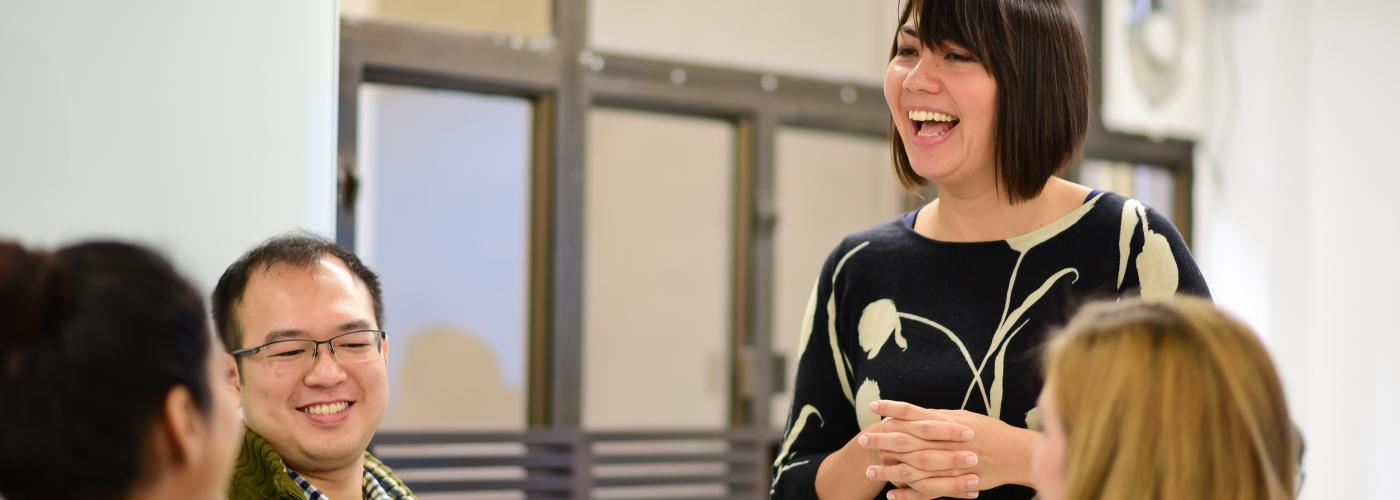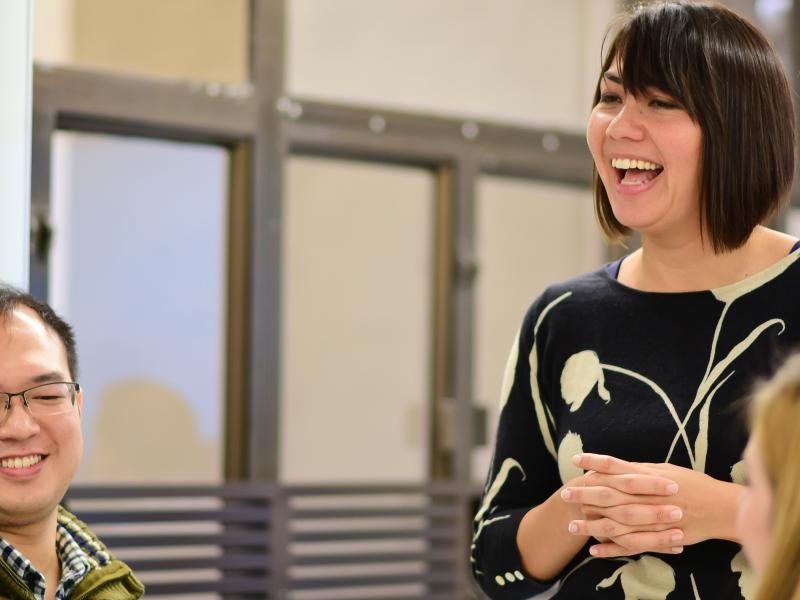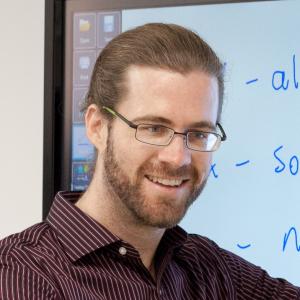31st January 2017
Article contributors: Tom Garside, Sharon Maloney, Bryan Holmes.
We´ve written alot about what it´s like to take a DipTESOL, and the differences between an MA and DipTESOL, but the reality is there´s no better resource than meeting people who have been through a course. In fact we often introduce applicants for our CertTESOL courses to trainees who are currently on the course, as they are able to give unique, first-hand insights into the experience as a trainee.
This week, we´ve asked some of our trainers to share their experiences and opinions about doing an MA in TESOL. If you´d like to know more about our talented, highly experienced and ruggedly good-looking team of teacher trainers, click here.
Why did you decide to take an MA?
BRYAN: I was looking for some additional professional development and better job opportunities.
SHARON: I wanted to improve my professional development as I felt that I needed to back up my years of classroom experience with theoretical grounding. Also, I was thinking further down the line with my career, about teaching abroad in Europe and I knew an MA would be a pre-requisite.
TOM: It seemed like a strong next step after doing the CELTA and Diploma in TESOL – the breadth of theory and the opportunity to try out some classroom research at a deeper level was also something I’d been wanting to do for a while
In what mode did you take the MA? (i.e. part time, full time, online etc.)
BRYAN: Part-time face to face.
SHARON: 2 years, part-time, distance, online.
TOM: part-time distance online
How long had you been teaching before taking your MA?
BRYAN: 6 years.
SHARON: 13 years.
TOM: 14 years
How did you know you were/felt ready to take the MA?
BRYAN: I felt I was stagnant in my career and the next obvious step was to complete an MA.
SHARON: Much the same as Bryan, and I wanted to increase my chances of employability abroad, in case I choose to travel and spend some time in other countries. I’d also had a few years post-Diploma teaching and felt like I needed to shake myself up a bit with some academia.
TOM: I had been involved in teacher training and development as well as teaching in some pretty specific academic contexts, so felt I needed to know more about different approaches and ways of doing things to meet the needs of future workplaces and develop new skills in different fields of TESOL
What area did you specialize in for your research?
BRYAN: Discourse, phonology, literature .
SHARON: Teacher training, TESOL management & marketing, issues in teaching English for Academic Purposes, materials evaluation and design.
TOM: Classroom discourse – specifically the ways in which teacher language and behavior can affect student output.
Why did you choose this area?
BRYAN: It was an area of interest.
SHARON: They were areas that related to my job role as Director of Studies, and I wanted a practical management focus, which many TESOL degrees don’t have, as I didn’t want to be just a teacher, but also move into senior management and stretch my other skills.
TOM: Interaction between teachers and students is the foundation of communicative teaching and learning, and a specific area of need for many Chinese classrooms (I did my research in mainland China), so classroom discourse was a really relevant area for my teaching context at the time, and for being involved in language education in Asia more generally
What were you worried about most prior to the course?
BRYAN: The dissertation!
SHARON: The studyload! Juggling work and single-parenting together with study has been pretty horrible. In the final few months of my dissertation I struggled a lot with motivation and juggling job demands
TOM: Balancing the workload with a full-time job. It turned out to be a boon to the job rather than a competition for time in the end, though.
In what ways did you develop as a teacher on the course?
BRYAN: The psychology behind language learning and there was a strong emphasis on how language works.
SHARON: The core module of Applied Linguistics was really interesting and really helped me to consolidate my knowledge of the mechanics of language and discourse. I also got to meet some great teachers all over the world, as well as having some very good tutors.
TOM: I got the opportunity to see how other teachers worked in the same context as I was in, which put a lot of my own teacher actions into perspective and threw up a hundred areas of development for teachers in my situation. Looking at these more closely focused my own development and allowed me to develop as a trainer/ developer of teachers in many contexts
Were there any aspects/components of the MA that you didn’t enjoy?
BRYAN: No, I enjoyed it all, each course had its challenges. It didn’t affect my motivation.
SHARON: Juggling deadlines, and doing the first few assignments without clear guidance of what / how to write Masters’ level assignments. The structure was completely different to anything I’d written before. The dissertation research – I’m not one for doing action research. My motivation really slumped here.
TOM: The literature review. A Looooooong process, especially when handled from a distance.
What advice do you wish you’d had before taking the course?
BRYAN: The amount or reading you are responsible for and meet deadlines for your dissertation. Set goals while doing it.
SHARON: How much reading is involved, how to research for assignments and how to plan carefully for assignment deadlines. I had a lot of months where I had no weekends off, just work and study. If you’re a single parent, get help and get someone to baby sit at weekends so you can devote yourself to work - it was really difficult for my 8 year old.
TOM: Be really specific in your choice of dissertation topic. If you think you’ve got a specific enough area to work on, cut it in half and be more focused on an individual area. This caused me to do about three times as much work as I could have done. A lot of late nights transcribing hours of classroom interaction. Got good results, but wore myself out for about three months.
What are you top 3 suggestions for resources for future MA candidates?
BRYAN: How to use the University library, meet with professors, attend lectures and complete assigned work.
SHARON: First, find a study buddy or mentor who can guide you and be a soundboard. There will definitely be times when you feel like breaking down and throwing all your work into the fire and they will hold your hand through it!
Second, get to know the online resources available early on – library, moodle, online resources and documents, Google Scholar will become your most used tool!
Finally, stay on top of your assignments and reading. Study a bit every week and write your thoughts down, read around the material and try to relate it to your own context where you can. Your responses will help others in turn.
TOM: Online library portals, reviews / information about the specialisms of supervisors, a workplace and colleagues / students who are happy for you to analyse their teaching and learning.



